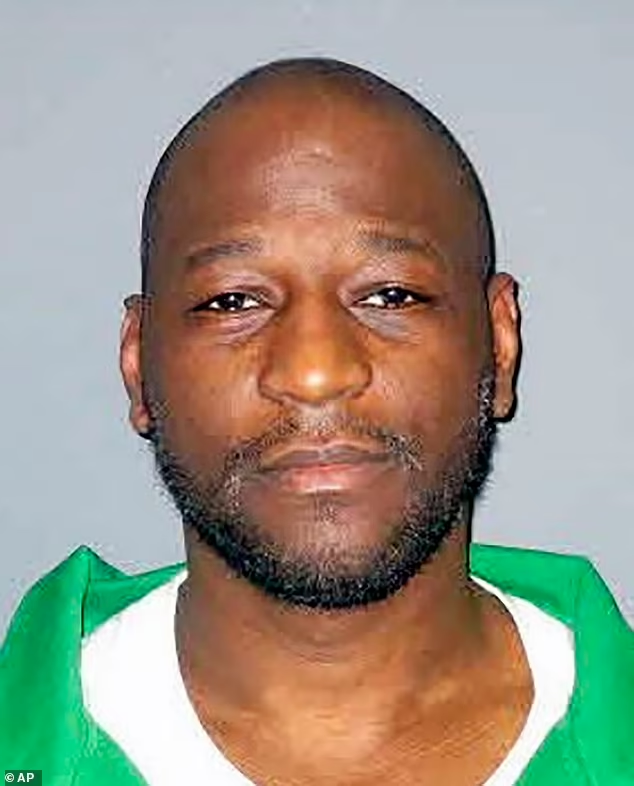A man’s execution in the U.S. has descended into chaos after a key witness revealed in a sworn statement that he had lied to secure a conviction.
Freddie Owens, from South Carolina, is scheduled to die by lethal injection on Friday, September 20, for the 1997 murder of convenience store clerk Irene Graves during a robbery in Greenville.
On Wednesday, Owens’ attorneys submitted a statement from his co-defendant, Steven Golden, asserting that Owens was not present at the store when Graves was killed. Golden confessed that he had falsely implicated Owens while under the influence of cocaine and pressure from law enforcement.
In his statement, Golden wrote, “I thought the real shooter or his associates might kill me if I named him to police. I am still afraid of that. But Freddie was not there.”
Despite Golden’s claims, the South Carolina Supreme Court has declined to intervene and stop Owens’ execution. On Thursday, justices ruled that Golden’s statement did not warrant halting the execution.
Attorney Gerald “Bo” King remarked, “South Carolina is on the verge of executing a man for a crime he did not commit. We will continue to advocate for Mr. Owens.”
Golden had previously testified at Owens’ trial, stating that prosecutors had promised to consider his testimony favorably, yet he still faced the death penalty or life in prison. He ultimately received a 28-year sentence after pleading guilty to a lesser charge of voluntary manslaughter.
Golden explained, “I’m coming forward now because I know Freddie’s execution date is September 20, and I don’t want Freddie to be executed for something he didn’t do. This has weighed heavily on my mind, and I want to have a clear conscience.”
Prosecutors argued that other witnesses had testified that Owens was the shooter, claiming he bragged about killing Graves to friends. His former girlfriend also stated that he confessed to the crime.
Less than 12 hours after his conviction for Graves’ murder, Owens was involved in the death of fellow inmate Christopher Bryan Lee during a cell confrontation, reportedly over Lee revealing that his cousin served on the jury that sentenced Owens.
Prosecutors have suggested that Golden’s retraction lacks credibility since he admitted to lying under oath, raising doubts about his trustworthiness.
On Thursday, a group called South Carolinians for Alternatives to the Death Penalty delivered a petition with over 10,000 signatures to Governor Henry McMaster, urging him to commute Owens’ sentence to life imprisonment. Rev. Hillary Taylor, the director of the group, stated, “Justice works for restoration. You cannot restore someone who you kill.”
Governor McMaster, a Republican, indicated he would announce his decision on clemency just moments before the execution.
If executed, Owens would be the first person in South Carolina to face the death penalty in 13 years, amid ongoing difficulties in securing lethal injection drugs. The state has also added a firing squad option and enacted a shield law to keep execution details confidential, allowing the death chamber to reopen this summer.
Owens chose lethal injection over the electric chair or firing squad, leaving his fate in the hands of his lawyer due to his Muslim faith, which prevents him from actively participating in his own death.






